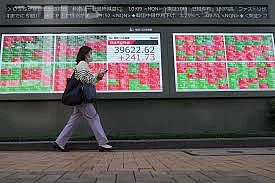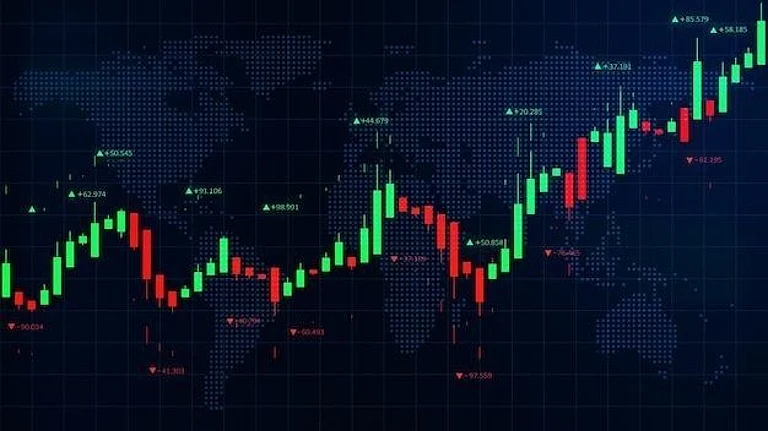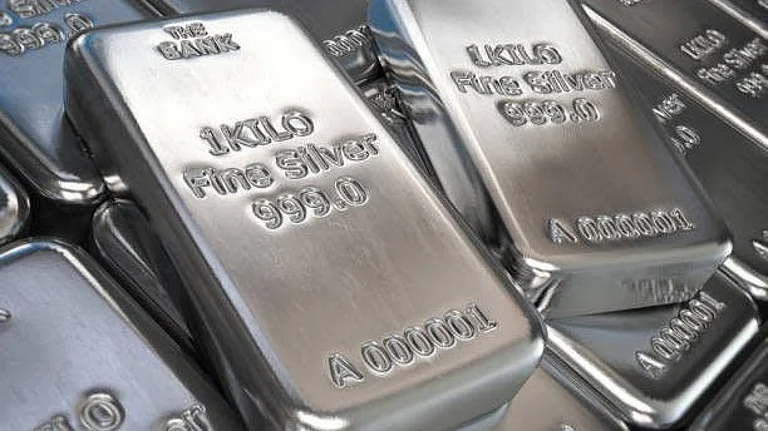Asian shares mostly declined on Tuesday as worries spread over President-elect Donald Trump's comment that he plans to impose sweeping new tariffs on Mexico, Canada and China as soon as he takes office.
Japan's benchmark Nikkei 225 dropped 0.9 per cent to 38,442.00. Australia's S&P/ASX 200 lost 0.7 per cent to 8,359.40. South Korea's Kospi dipped 0.6 per cent to 2,520.36. Hong Kong's Hang Seng was little changed, inching up less than 0.1 per cent to 19,158.76, while the Shanghai Composite gained 0.1 per cent to 3,261.12.
On Monday, stocks rose on Wall Street, with companies likely to benefit the most from lower interest rates and a stronger economy leading the way. The S&P 500 climbed 0.3 per cent to 5,987.37, pulling closer to its all-time high set two weeks ago. The Dow Jones Industrial Average added 1 per cent to its own record set on Friday, closing at 44,736.57, while the Nasdaq composite rose 0.3 per cent to 19,054.84.
Treasury yields eased in what some analysts called a “Bessent bounce” after Trump said he wants Scott Bessent, a hedge fund manager, to be his Treasury Secretary.
Bessent has argued for reducing the US government's deficit, which is how much more it spends than it takes in through taxes and other revenue. Such an approach could soothe worries on Wall Street that Trump's policies may lead to a much bigger deficit, which in turn would put upward pressure on Treasury yields and drive prices lower.
After climbing above 4.44 per cent immediately after Trump's election, the yield on the 10-year Treasury fell back to 4.26 per cent Monday, down from 4.41 per cent late Friday. That's a notable move, and lower yields make it cheaper for all kinds of companies and households to borrow money. They also give a boost to prices for stocks and other investments.
The Russell 2000 index of smaller stocks jumped 1.5 per cent. It finished just shy of its all-time high, which was set three years ago. Smaller companies can feel bigger boosts from lower borrowing costs because of the need for many to borrow to grow.
The two-year Treasury yield, which more closely tracks the market's expectations for what the Federal Reserve will do with overnight interest rates, also eased sharply.
The Fed began cutting its main interest rate just a couple months ago from a two-decade high, hoping to keep the job market humming after bringing inflation nearly all the way down to its 2 per cent target.
But immediately after Trump's victory, traders had reduced bets for how many cuts the Fed may deliver next year. They were worried Trump's preference for lower tax rates and higher spending on the border would balloon the national debt.
A report coming on Wednesday could influence how much the Fed may cut rates. Economists expect it to show that an underlying inflation trend the Fed prefers to use accelerated to 2.8 per cent last month from 2.7 per cent in September. Higher inflation would make the Fed more reluctant to cut rates as deeply or as quickly as it would otherwise.
In the stock market, Bath & Body Works jumped 16.5 per cent after delivering stronger profit for the latest quarter than analysts expected. The seller of personal care products and home fragrances also raised its financial forecasts for the full year.
Much focus has been on how resilient US shoppers can remain, given high prices across the economy and still-high interest rates.
Another big retailer, Macy's, said Monday its sales for the latest quarter were in line with its expectations, but it will delay the release of its full financial results. It found a single employee had intentionally hid up to USD 154 million in delivery expenses, and it needs more time to complete its investigation. Macy's stock fell 2.2 per cent.
In other dealings early Tuesday, benchmark US crude added 25 cents to USD 69.19 a barrel. Brent crude, the international standard, added 25 cents to USD 73.26 a barrel.
In currency trading, the US dollar slipped to 153.87 Japanese Yen from 154.20 Yen. The Euro cost USD 1.0478, down from USD 1.0495. (AP) NPK






























